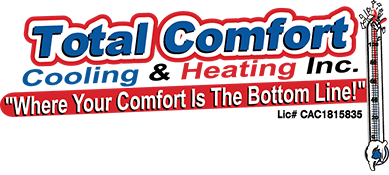Top 5 Types of Water Heaters You Should Know
There are several types of water heaters, each suited for different needs. This guide will outline the top 5 types of water heaters, giving you the pros and cons of each to help you decide which is best for your home.
Key Takeaways
- Conventional storage tank water heaters offer reliable hot water supply and are cost-effective but require maintenance to extend their lifespan.
- Tankless water heaters provide endless hot water and energy savings by eliminating standby energy losses, though they have higher initial costs and may struggle with high simultaneous demand.
- Heat pump water heaters are highly energy-efficient and suitable for reducing energy bills but require specific temperature conditions and ample air space for optimal performance.
Conventional Storage Tank Water Heaters
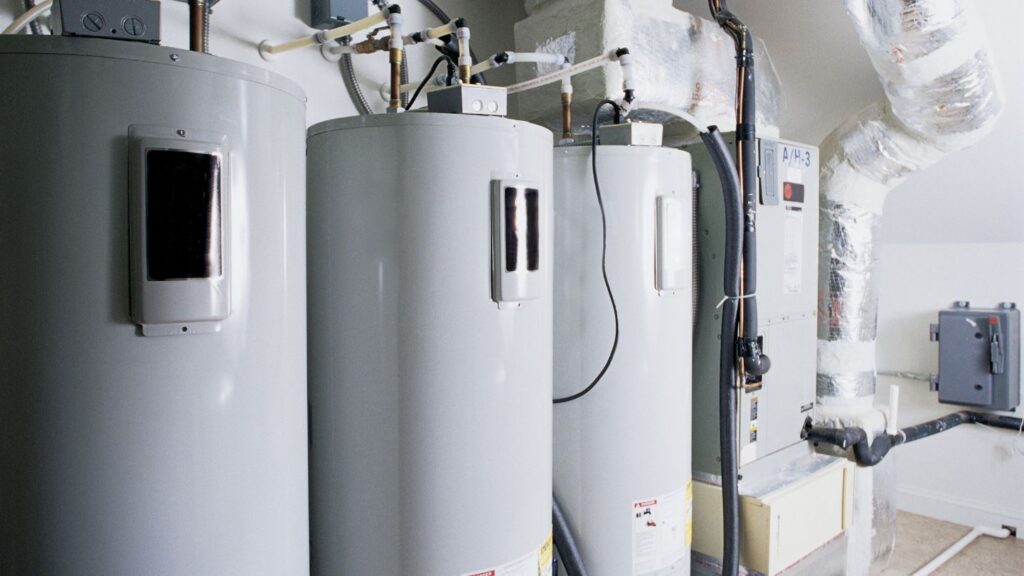
Storage tank water heaters serve as the cornerstone for hot water needs in numerous homes, ensuring a consistent supply of hot water for various activities. With capacities ranging from 30 to 100 gallons, these conventional storage tank heaters maintain a reserve of heated water ready for immediate use—be it showers, dishwashing, or laundry.
When it comes to cost-effectiveness, tank water heaters stand out due to their lower upfront costs when compared with advanced options such as solar or tankless water heaters. Versatile in fuel requirements, they can run on electricity, natural gas, liquid propane, or oil, providing homeowners with flexibility based on local resource availability and pricing preferences.
To ensure durability and optimal performance from your storage tank heater—which typically lasts between 10-12 years—it is essential to conduct regular maintenance, including draining and flushing out the tank periodically. This practice helps minimize sediment accumulation inside the large storage tanks that are integral parts of these reliable and economical household appliances.
Tankless Water Heaters
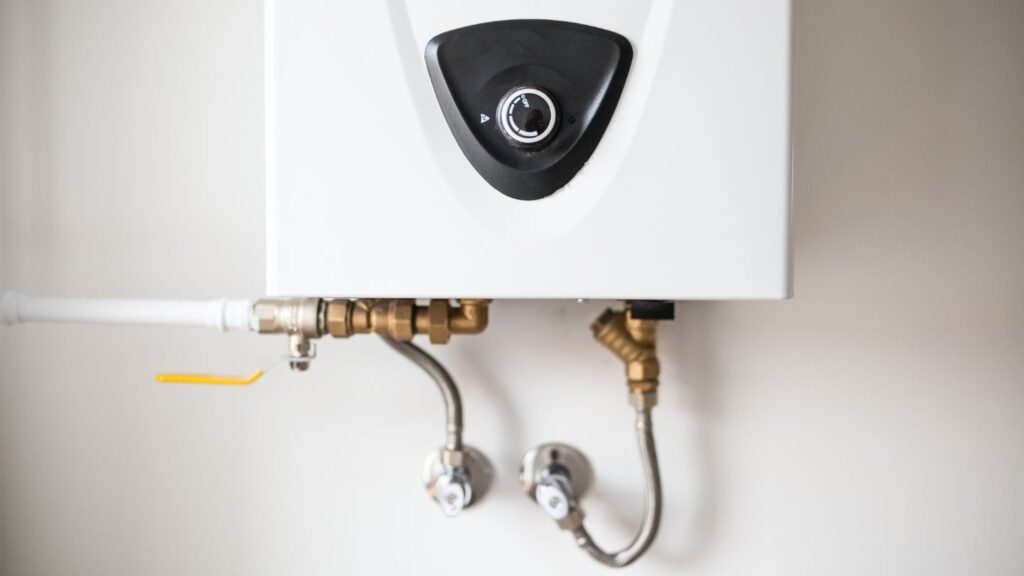
Tankless water heaters, often referred to as on-demand water heaters, heat water directly without the use of a storage tank. This approach provides an endless supply of hot water and is highly suitable for sizable households or those with considerable demand for hot water. In contrast to traditional tank-based models, these modern units eliminate the energy waste associated with maintaining heated water in a storage tank, offering notable reductions in your energy expenses.
These systems boast impressive durability. Their operational lifespan can exceed two decades—markedly more than that of standard conventional tanks—thus adding value over time despite higher upfront costs and occasional descaling requirements to preserve efficiency. The installation investment varies widely from $800 to $3,500 based on system specifications and home infrastructure.
There are limitations attached to tankless models—they may falter when supplying simultaneous demands across various outlets due to limited flow capacity—and carefully matching unit capabilities with peak household consumption rates is essential during selection. Even though they face such considerations regarding performance scaling under concurrent loads, the benefits stemming from lower operating costs and sustained access to instantaneous hot water secure their appeal among alternatives within the market.
Heat Pump Water Heaters
Utilizing ambient heat from the surrounding air or ground, heat pump water heaters offer a significantly more energy-efficient solution for warming water than standard options. These units can achieve roughly 60% greater energy efficiency compared to conventional electric water heaters, leading to considerable reductions in energy bills. With their advanced technology, these heaters manage two to three times greater efficiency than traditional electric models.
Yet, the optimal performance of heat pump water heaters is contingent on certain environmental conditions. They are most effective within an ambient temperature range of 40°–90°F and require a substantial amount of space—no less than 1,000 cubic feet—for proper airflow and efficient heat exchange. This makes them ill-suited for colder climates due to their propensity to lower the temperature in their vicinity.
Despite higher upfront costs associated with acquiring a heat pump water heater system, when balanced against reduced operational expenses over time, this initial investment often vindicates. Homeowners who prioritize reducing their ecological impact while aiming for sustained cost savings will find these systems particularly attractive options.
Solar Water Heaters
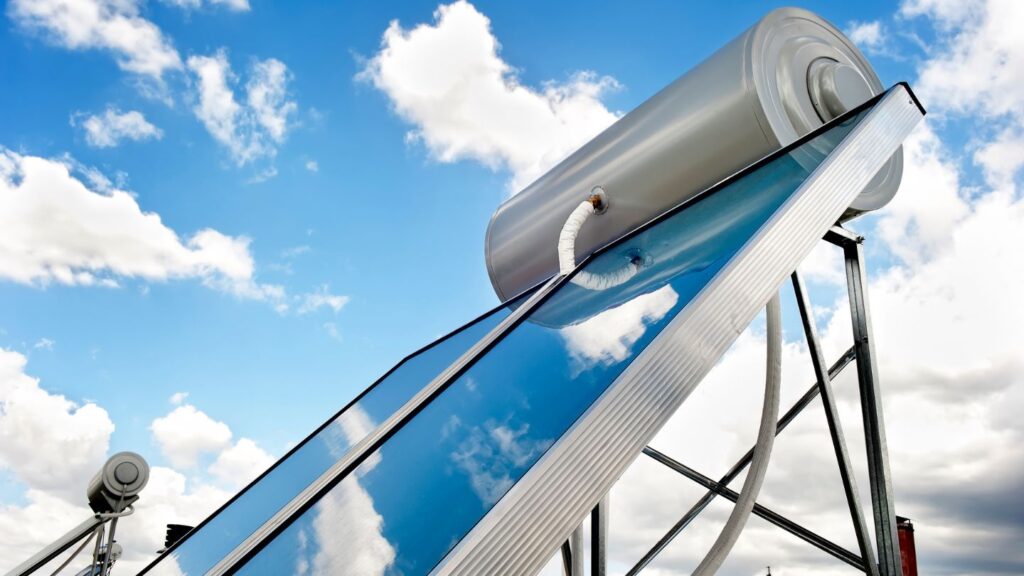
Utilizing the power of sunlight, solar water heaters provide a sustainable and economical solution for heating water. These devices harness thermal energy from the sun through solar panels and transfer it to a well-insulated storage tank. Particularly beneficial in areas with ample sunshine, solar water heaters can lead to substantial savings on energy costs when used extensively during warmer months.
A common configuration for a solar water heater system comprises flat-plate collectors coupled with an expansive tank that stores the hot water produced. Due to the intermittent nature of sunshine (particularly during overcast or winter days), these systems often incorporate an auxiliary heat source such as gas or electrically powered water heaters to maintain a reliable hot water supply.
Although efficient, there are some hindrances associated with solar-powered hot water systems. Snow accumulation may obstruct the operation of solar panels, decreasing their efficiency in colder seasons. Nevertheless, despite these obstacles, environmental considerations and long-term cost reductions render them an appealing choice for homeowners who prioritize ecological sustainability.
Read more: How Does a Heat Pump Work in Winter? Explained for Cold Weather Efficiency
Condensing Water Heaters
Condensing water heaters are engineered to optimize energy efficiency by reclaiming heat from the exhaust gases that conventional water heaters would typically release. This process allows a condensing water heater to utilize these gases to heat the water, which can lead to marked savings in energy consumption. These types of heaters come both as tankless models and with storage tanks, but they’re usually necessary when there’s a demand for more than 55 gallons.
Renowned for their high levels of energy efficiency, such devices offer substantial reductions in long-term costs pertaining to household energy bills. They predominantly run on natural gas and are particularly well-suited for homes with an extensive need for hot water. Despite higher upfront expenditures compared to standard options, the potential long-term benefits in terms of reduced expenses and improved efficiency often justify investing in them.
Despite these advantages, it is worth mentioning that condensing units tend not to be feasible choices where space is constrained, or demands don’t warrant large-capacity systems largely because available models cater primarily towards larger installations. Nevertheless, homeowners who possess adequate rooms may find adopting this technology immensely beneficial.
Hybrid Water Heaters
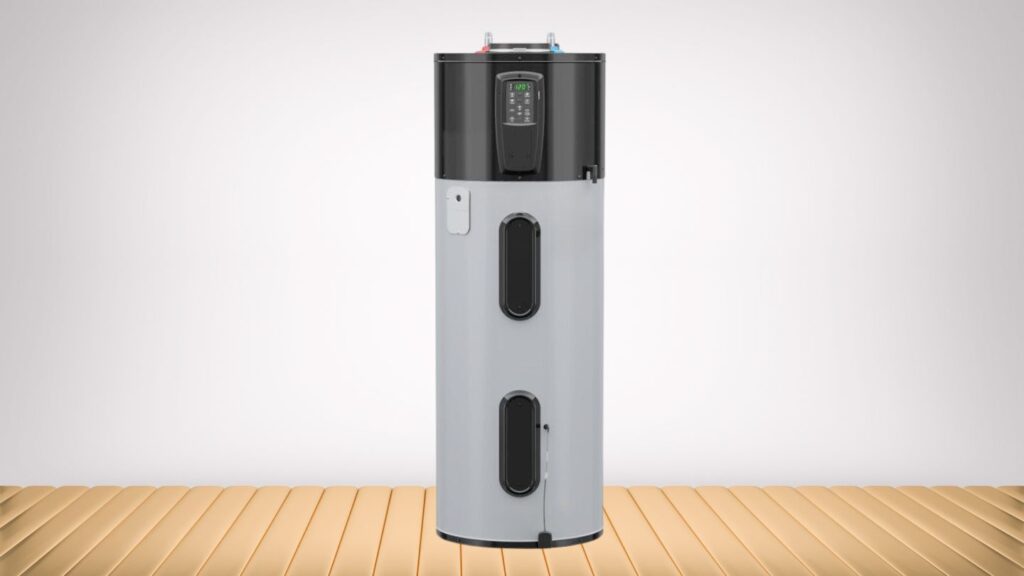
Hybrid water heaters combine traditional heating elements with heat pump technology to deliver an efficient way of producing hot water. This fusion can result in energy savings up to 60% more than standard tank water heaters. Some hybrid units even utilize geothermal heat pumps that draw residual ground heat for enhanced water heating efficiency.
Designed primarily for areas with mild temperatures, these systems efficiently extract heat from the surrounding air and soil. They need a larger space for installation compared to regular tank models and may not perform optimally in extremely cold environments because their ability to condense is hindered at higher water temperatures.
For those who prioritize both performance and cost-effectiveness in their hot water needs, hybrid water heaters stand out as an attractive choice. They marry multiple technologies together, ensuring a consistent supply of hot water while cutting down on the amount of energy required to heat it.
Point-of-Use Water Heaters
Water heaters designed for point-of-use are tailored to supply hot water directly to a single plumbing feature, such as a shower or sink. These compact units can be an excellent addition for homes with existing ductwork systems, as they reduce the strain on centralized heating systems. These diminutive systems can be mounted inconspicuously, typically beneath the sink, offering an efficient use of space for particular uses.
While they may not boast the same level of efficiency as whole-house water heater systems, these compact units excel in settings where quick access to hot water is essential. Point-of-use water heaters enhance the effectiveness of heating in targeted zones by cutting down on extensive pipe runs and decreasing the wastage of water.
Indirect Water Heaters
Indirect water heaters leverage a pre-existing boiler or furnace to heat water, offering an energy-efficient complement for homes equipped with central heating. A distinct storage tank is necessary to contain the hot water produced, promoting less frequent activation of the boiler and consequently lowering energy usage.
When combined with a high-efficiency boiler and a robustly insulated tank, indirect water heaters emerge as some of the most economical choices for supplying hot water. They present both dependable and efficient means, particularly suited to residences that utilize boilers for space heating.
How to Choose the Right Water Heater
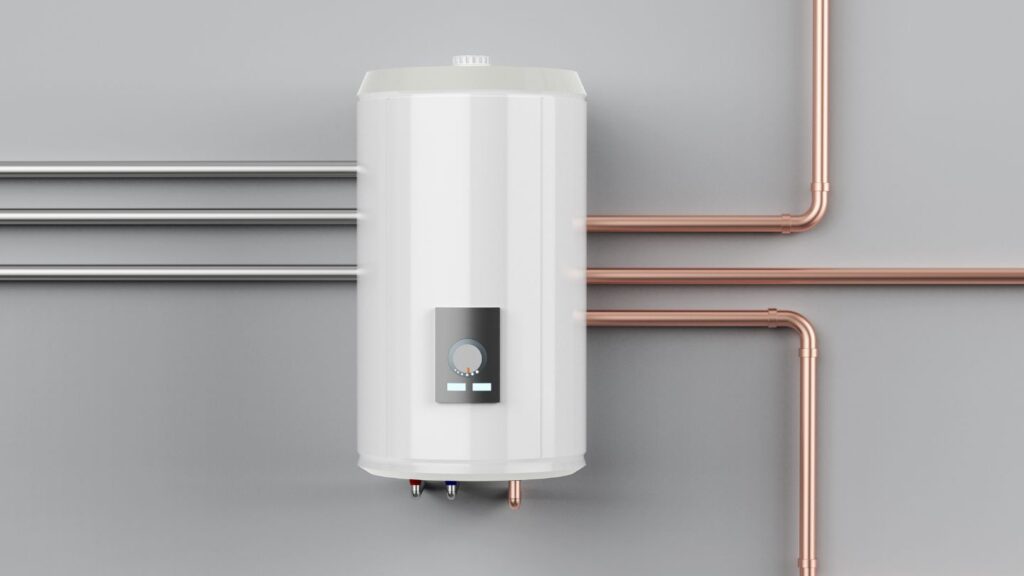
When deciding on the most suitable water heater for your residence, it’s essential to take into account a variety of factors. It’s vital that the size matches your household’s demand for hot water. If it’s too small, you’ll frequently deplete your supply, but if it’s oversized, unnecessary energy could be expended, heating excess water.
The level of energy efficiency is another key factor to consider. Opting for a highly efficient model can result in annual savings on energy bills ranging from $200 to $600. By examining and comparing the yearly running expenses across different models, one can gauge their cost-effectiveness over time.
The type of fuel used by the heater and its accessibility should also guide your choice. Whether opting for an electric unit or one powered by natural gas or solar power – among other available options – take into account both ongoing costs and local availability of these fuels when making decisions about which type will serve you best.
In summary, when choosing a new water heating system, consider your family’s usage and budget, and seek advice from professionals. This process ensures you select the best option for your needs, providing satisfaction with your investment. Proper pre-purchase consultations with industry experts can help clarify any doubts, ensuring an optimal choice that meets your requirements. This comprehensive approach guarantees a smooth purchase, installation, and operation, leading to a successful outcome and customer satisfaction.
Total Comfort Cooling Services
Total Comfort Cooling delivers exceptional HVAC solutions to both home and business owners in Port Charlotte, adapting each installation to cater to individual requirements. Customers can rely on a 10-year warranty for parts and one full year of coverage for labor. The company suggests enrolling in their comprehensive maintenance programs, which include biannual service recommendations, for optimal system functionality.
The firm extends beyond just installations and routine care by offering around-the-clock emergency response services. Expert technicians are readily available at any hour to resolve pressing complications swiftly. They provide duct cleaning services that not only improve air quality but also enhance the overall performance of your HVAC unit.
To accommodate various financial situations without compromising service quality, Total Comfort Cooling presents diverse financing choices. They stand firmly behind their commitment to excellence and ensuring customer satisfaction, making them a reliable ally for managing all aspects of your heating, ventilation, and air conditioning needs.
Summary
Understanding the different types of water heaters can help you make an informed decision that meets your needs and budget. From conventional storage tanks to advanced solar and hybrid systems, each type offers unique benefits and considerations.
For professional advice and installation, HVAC in Port Charlotte is here to help. Our HVAC expertise ensures you get the best system for your home, providing comfort, efficiency, and peace of mind. Contact us today to learn more about your options and schedule a consultation.
Frequently Asked Questions
What factors should I consider when choosing a water heater?
When choosing a water heater, it is essential to consider your household size, energy efficiency, fuel type, and operating costs.
Properly assessing these factors ensures an effective and economical hot water supply for your needs.
How often should I maintain my water heater?
It’s important to carry out annual maintenance on your water heater, which includes descaling tankless models and flushing those with tanks to promote their efficiency and extend their service life.
Consistent upkeep is essential in preventing expensive fixes and prolonging the duration of your appliance’s functionality.
Are solar water heaters effective in winter?
Solar water heaters can be effective in winter, but they often need a backup heating system to maintain a reliable supply of hot water during periods of low sunlight.
This ensures you stay comfortable even in colder months.
What are the benefits of a condensing water heater?
By utilizing exhaust gases to heat water, a condensing water heater achieves high energy efficiency, resulting in significant reductions in energy bills for homes with substantial hot water needs.
Why should I consider Total Comfort Cooling for HVAC services?
You should consider Total Comfort Cooling for its tailored HVAC services, 24-hour emergency support, and extensive maintenance plans, all designed to ensure your comfort and satisfaction.
Their commitment to quality and flexible financing options also makes them a reliable choice for your HVAC needs.
READY FOR YOUR NEXT HEATING OR COOLING PROJECT?
Contact us to get a quote and see why our customer service is recognized as the best in the industry.
